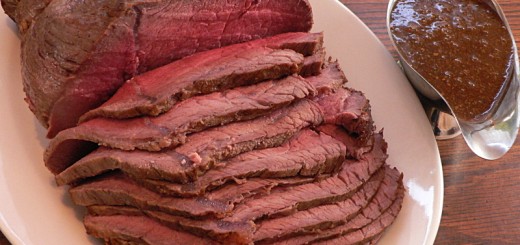Rabbis easing rules on conversions?

According to the Miami Herald, “Now even Orthodox rabbis, the staunchest opponents of interfaith marriage, are exploring ways to encourage conversions.”
Of course, as the article goes on to stress, the rabbis at the conference they were covering were discussing the unique situation of an intermarriage, where the couple is a fait accompli. In that situation, one has to balance the reluctance to accept conversion with the benefits of a Jewish marriage for the Jewish spouse.
Even so, the word “encourage” is probably not merely an exaggeration, but flat-out wrong. The opposition is merely reduced because now conversion can, in Rabbi Leib Tropper’s words, “remedy a problem.” That’s not a suggestion to evangelize to the non-Jewish spouse like New York’s “Jewish Outreach Institute.” Not slamming the door three times isn’t the same as dragging people through it.
Also, nothing here seems to be truly new. Were there “ground-breaking discussions among Jewish legal scholars on how to simplify the long and involved Orthodox conversion process?” It doesn’t sound that way at all. Rather, the conference was an effort to educate the attending rabbis in the appropriate Halachic methodologies for conversion of the non-Jewish partner.
A misunderstanding here could be dangerous. Even today, there are people who think that Conversion can save the Jewish People. History has demonstrated that resistance to conversion and opposition to intermarriage have both served the Jewish people well — the conference was merely an effort to understand how to approach a conflict between these two positions. A worthwhile effort, to be certain, but one which must not be misunderstood.



To Liberal Jews, your argument that “history demonstrates that resistance to conversion and opposition to intermarriage serves the Jewish people well” is nonsense since the Jews experience in America is radically different than anything they experienced in Christian Europe or the Islamic world. Time will tell who is right on this issue.
Elliot Fein
It’s interesting that you bring this up around Purim time, because the Gemara in Sanhedrin 99b indicates that Amalek, the ancestor of Haman, was born as a result of our forefathers’ rejection of a potential proselyte, Timnah. Similarly, the Gemara in Sottah 42b notes that Goliath and his brothers, including Yishbi, who almost killed King David, were the sons of Orpah, another rejected applicant for geirus.
On the one hand, R Schwab is quoted as having said that Amalek became what he was because he saw how embittered his mother, Timnah, was by her rejection.
But the Alter of Slobodkeh (in his work Ohr Hatzafun) says that we know that Avraham was a great seeker of geirim, and if he refused Timnah, he must have discerned in her the some irremediable flaw which indeed ultimately produced the nation of Amalek, and they didn’t want those personality traits grafted onto the Jewish people. He believed that it is better to allow the creation of an eternal existential threat rather than jeopardize our defining Jewish traits.
Does the availability of a post-facto remedy with a hechsher remove a obstacle to intermarriage?
I don’t think that the conversion process itself should be made easier (I’m currently in that
“1 year waiting period” awaiting my file to be looked at by the Beis Din) because living as a
Torah observant Jew does not happen overnight. However, I think along the way, there should
be encouragement and support; as well as the general attitude that if you are willing to
commitment, then we are willing and happy to have you. To facilitate conversion just because
they married a Jew is not doing any justice to that person nor to Judaism.